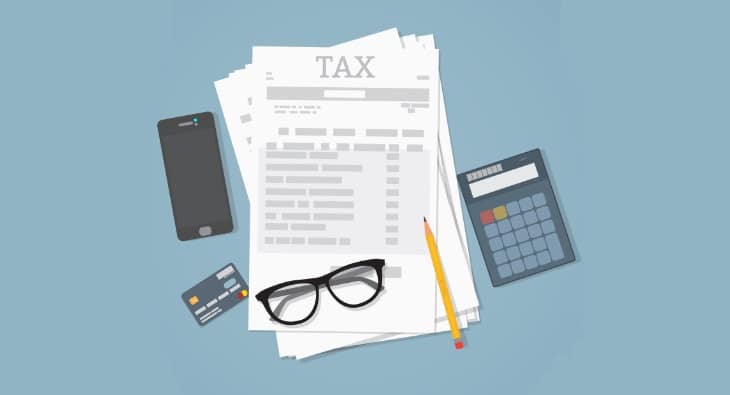Jasmine Birtles
Your money-making expert. Financial journalist, TV and radio personality.

Everyone dreams of a windfall. But an inheritance, gift or redundancy pay-out isn’t an unalloyed joy. Working out what to spend, what to invest, and where to put your money can be a bit daunting. If you don’t know where to start, it’s worth following five steps that can help you decide what to do with a windfall.
The most common windfalls tend to be an inheritance. According to research by SunLife, a fifth of people expect to receive an inheritance – averaging £119,000. The researchers found that only one in ten people would invest it all, while a third would pay off the mortgage. Meanwhile, two fifths would cover other debts, and three quarters would spend at least some of the cash.
The question is what should we really be doing with the money?
If you have any expensive debts, such as loans, credit cards and store cards, you should pay these off in full before you do anything else. Don’t let your windfall sit in a savings account while you carrying on paying high interest rates on your loans.
You should pay off all your debts as soon as you can, even if it uses up your whole windfall. It sounds boring, and it might not be as much fun as a holiday, but basically you’re buying freedom. Imagine how wonderful it will be to wake up in the morning free of that heavy debt burden.

Once your expensive loans and cards have been paid off, you need to think about your mortgage.
Paying off your mortgage is one of the best and safest investments you can make. Why?

In the short term there are some potential downsides to paying off your mortgage early. Make sure you factor in mortgage exit administration fees and early repayment charges when you are working out what you stand to save.

If your windfall is enough to pay off your mortgage completely, then you’ll need to be aware of exit fees.
The MEAF can be applied when repayment is completed. Check with your mortgage company to find out how much it is, but the good news is that the fee is usually only around £50 – £300.
If you’re not able to pay off your entire mortgage with your windfall, it’s still usually worth paying off a chunk of it with a lump sum.
This is much easier for flexible mortgage holders, because they allow you to overpay whenever you want without charges. Those will a less flexible deal will need to look into the penalty fees. Do the sums that apply to your mortgage deal to see what penalties you will pay, and whether it’s worth it.

After paying off the mortgage, you need to give yourself a cash cushion to fall back on in case anything should ever go pear-shaped. This needs to be kept as cash savings you can access in an emergency – either in a savings account or a cash ISA.
As you can see in our article on why you must have a savings safety net everyone should have money set aside to cover their basic expenses for at least three months.

If you have money left over after having done all the steps above, get your money working for you by investing it for the long-term. If you are considering investing, remember to follow these two golden rules below…

1. Spread your money across different asset classes (types of investments)
2. Reduce your tax where possible
It may sound boring but if you have come into a large amount of cash (particularly if it was in the form of a redundancy payment – see below), it’s a very good idea to put some of it into a pension.
The reason is that any money you put into a pension product has the tax you would have paid on that money added in by the government. So if you’re in danger of paying tax on your windfall, pensions are a brilliant way to claw back some of that cash.
For a quick, easy way to invest in your own pension, just set up a nice, cheap stakeholder. We explain what stakeholder pensions are and how to get one in this article.
On the other hand, if you are more confident about managing your money, go for a SiPP. We explain how to go about it – or how to get someone else to manage it for you – in this SiPPs article.
Make sure as much of your money as possible is wrapped up in an individual savings account (ISA). Each year the government allows us to save a certain amount in ISAs completely tax-free. In the tax year 2017/18 it’s £20,000. You can split that money between your cash ISA and your stocks and shares ISA however you choose.
We like stocks and shares ISAs much more than cash ISAs because although they can lose money, and in the short term can be fairly volatile, in the long term they have the potential to make a LOT more money for you. When you invest for the long term you can afford to invest in riskier products because over the years the ups and downs will average themselves out.
There is a range of products on the market that you can wrap in an ISA. You can invest in a simple index tracker, ETF, or managed fund. For more information on choosing a shares ISA, read our full article here and find out how to make big money long-term.
Whatever you invest in, make sure you do your research first and don’t invest in anything you don’t understand. Take a look at the articles in our Saving and Investing section for some clear, basic information.

If your windfall is in the form of a redundancy payment, you need to be particularly careful about tax. The first £30,000 of your pay-off is tax free, but you have to pay income tax on whatever is left. The rate you pay depends on how much you have earned already in that tax year.
One good way of clawing back the tax you have to pay on the extra is to put it into a pension. Some employers will allow you to have the extra paid into your company pension. If not, set up your own stakeholder pension or SiPP (see above) and put the money into that. It means locking the cash away, but in return you get the tax back, and are saving for the future.
If you have children, consider setting up a stakeholder pension for them. You will only get back (into the pension pot) tax at the 20% rate but it’s still a very useful investment for your kids. Take a look at our article on stakeholder pensions for children here.
Other tax-free investments include:
We’re not thrilled by either of these investment products because they have not performed well since they were set up. Even with the tax break they may not be worth it.
You could also consider putting money into National Savings and Investments (NS&I) products which are also tax-free. However, again, most of them, even with the tax-break, don’t perform well enough to be really helpful in the long term.
You can get more information about the tax rules on redundancy pay from the Government’s factsheet here.

